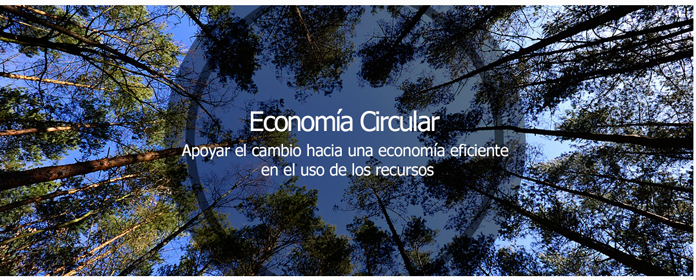"The environment is going to be a determining factor in the competitiveness of a business"
Javier Aguirre (Bio '01), from Coval Consultores, opted for the environmental branch in the Degree of Biology at the University

After gaining experience and specialization at consultancy service, Javier Aguirre launched his own business, COVAL Consultores, where he advises on the development of new businesses. His position forces him to be at the forefront of developments in the sector, where he points to the added value of environmental biologists in the development of two concepts called to transform our environment: the Economics circular and environmental social innovation.
- What are you currently working on and how do you apply the knowledge acquired during your degree program?
Currently development my activity as consultant, trainer and auditor of various disciplines in COVAL Consultants which, after various professional experiences, saw its light at the end of 2013. My training as a biologist has given me a methodology of work and study, very varied knowledge in the field of science and, undoubtedly, values such as work as a team, a solid foundation on which you have to specialize later and continue training.
- How do you value the knowledge acquired for the development of your work in the environmental area ?
What I learned during the degree program is the substrate to join the market with the desire to gain experience and to seek your own path through the specialization. Moreover, in my case, the "environmental" base allowed me to go deeper into issues such as the treatment of hazardous waste derived from industrial activity, the understanding of manufacturing processes linked to sectors such as agri-food, fertilizer manufacturing, surface treatment, etc... All these are processes that we analyze today from a technical and legal point of view for their adequacy and optimization and that we already saw in the subject which in my time was called "assessment of Environmental Impact". Those classes interested me a lot and determined my orientation towards the world of organizations and their needs.
- Why is a biologist a good candidate to work in the environmental field? What has your training given you?
I think that the generalist vision we acquired during the degree program allows us to fit in different profiles that are currently in demand in the field of quality, health and safety, and industrial environment. Additionally, it is crucial not to give up and take steps in a specific direction without getting lost along the way. Set a goal and fill in the training necessary to achieve it.
- What do you think will be the next challenges facing biologists who want to work in the environmental field? What issues are going to be newsworthy in your field in the coming years?
We have been hearing for years that the environment will be a determining factor and that, as such, it will value those professionals who work for its conservation. That moment has not yet arrived, but those who opt for this training now will see the development of this sector in the coming decades.
The scarcity of certain natural resources, the increase in pollution, climate change, international agreements, society's opinion on the role of companies and their contribution to value are elements that are increasingly important and will undoubtedly make the environment a factor that determines an organization's competitiveness.
- As an expert in environmental management , what new concepts are you currently working on?
Two ideas are currently gaining momentum: circularEconomics and environmental social innovation. In the first case, this new Economics is based on the intersection of environmental and economic aspects, since the current linear system - extraction, manufacture, use and disposal - has reached its limit and the real exhaustion of a series of natural resources and fossil fuels is beginning to be glimpsed. This Economics advocates precisely a new model society that uses and optimizes stocks and flows of materials, energy and waste to increase efficiency and resources.
On the other hand, environmental social innovation is, from agreement with Stanford Graduate School of Business, a new, more effective, efficient, sustainable or fair solution to a social problem compared to the current solution. It is an approach that seeks an improvement for the collective and not just for individuals.
- How will environmental biologists face these important challenges?
In the first place, through specialization, which will be a prerequisite. But the great challenge for biologists and other experts will lie in entrepreneurship, which requires a lot of attitude and submission. The added value will come from the generation of new business ideas in the environmental field that respond to needs such as those already mentioned and also generate wealth.




